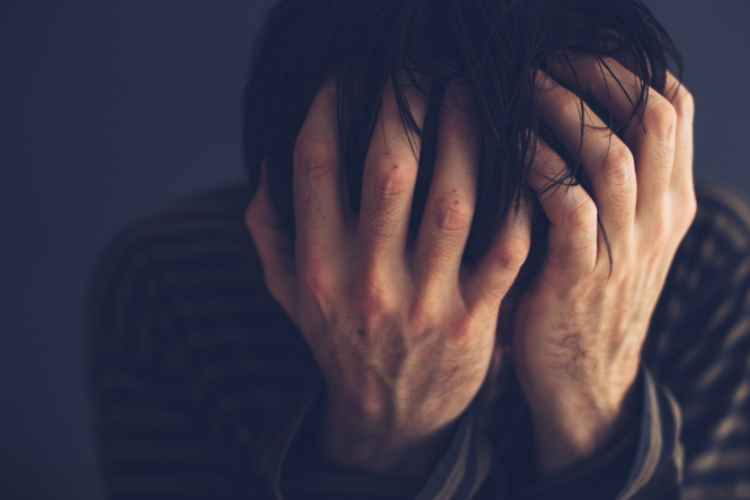Relapse is something that can happen to someone recovering from addiction. Yet, it is possible to avoid it at all costs. That’s why it is important to put a plan in place in case one may happen.
This guide will go over the dangers of relapse. You’ll learn about what it is and why it can be dangerous for someone recovering from addiction. If you are interested in learning more about what Epiphany Wellness offers, you can check out their website here: https://epiphanywellness.com/intensive-outpatient-program-new-jersey/.
Let’s continue this discussion regarding relapse and what you need to know.
What is relapse?
Relapse is defined as resuming your use of substances after a period of abstinence. For example, if you have been sober for six months and use a drug you were addicted to, that is a relapse.
This is normal during the treatment process and can occur at any time. This may depend on the factors that occur at the time. For example, if you are dealing with a serious addiction, in-home detox is the most risky thing to do.
One of the reasons for this is that you’re at a high risk for relapse. You may be dealing with withdrawal symptoms and you need to quell them with the drugs you use. Instead, you will need to seek medical attention as soon as possible.
These withdrawals can be serious, even fatal. Granted, you may also risk overdosing during a relapse. That will also yield fatal consequences.
Your tolerance levels may decrease as you have abstained from the drug for lengthy periods. Overdoses happen because the person who used this may not be aware of that. That’s one more reason why relapse should be important to avoid.
No matter what level of recovery a person is at, relapse can be avoidable. It will also depend on the user’s treatment plan and their environment. An inpatient setting will be the best chance for someone to avoid relapse.
That’s because they are able to get the medical attention they need when dealing with the withdrawal symptoms, including cravings. You won’t be able to receive this kind of medical attention and you may be well away from it at home.
Thus, if you are dealing with a serious addiction, avoiding a relapse is a must. That’s why you’ll need to attend inpatient detox and rehab if the treatment plan recommends it. Outpatient care will be ideal for those who are less likely to relapse (although there’s a small chance that can happen).
What is not considered a relapse?
There is often confusion about what may be considered a relapse. What you need to understand is that relapse is not failure. It’s more of a setback.
If you relapse, it doesn’t mean your recovery was all for not. To that end, relapse doesn’t mean that recovery will be impossible. There is no need to feel ashamed about it.
When it comes to living a sober life, it’s more of a behavior that you’ll need to learn. This means changing your behaviors that are programmed in your brain (including your subconscious mind). It’s important that you identify what may be considered triggering behaviors or habits.
You want to reroute them by doing the alternative. This means pulling yourself out of an environment where a relapse can happen. If you are at a get-together where there is drugs or alcohol present, you’ll want to leave as soon as possible.
What are the differences between slips, relapses, and lapses?
There are some terms that you may need to learn. Aside from relapse, there are also slips and lapses. What are the differences between them?
Someone may slip up using a substance, which is a one-time thing. Meanwhile, some may say a lapse will be where a substance is used for a brief period of time and they stop. Finally, relapse is a full-on re-introduction to the habit itself.
Oftentimes, the three terms are synonymous with one another. Regardless, this needs to be avoided. Even after treatment, one drink or one hit of a drug could lead to more. That’s why it is important for someone to avoid these substances altogether.
They may be pressured to try it once. However, it will take everything it takes for them to say no. You may also be stressed to the point where you may use a substance to self medicate.
It’s important to remember what you have learned during the treatment process. You may have a plan to handle stressful situations. You can avoid relapse as much as possible.
In the event that it does happen, know that you have a plan in place. The sooner you act on it, the more confident you’ll feel when you get back on the right track.
How to prevent a relapse
One of the best ways to prevent relapse is to remove yourself from environments where it can happen. These can include party environments or places where there may be a large amount of drugs or alcohol present. If you’re in a situation where you see people consuming alcohol like a restaurant, you can use the coping mechanisms that will help you resist using the substance.
It’s also a good idea to steer clear from people who are continuing to use substances. They may pressure you into falling back into old habits. You’ll want to associate yourself with those who will make your sobriety possible.
Final Thoughts
Relapse can be dangerous, even to the point where a fatal overdose can occur. That’s why you’ll want to prevent them at all costs. Even if you relapse, there is no shame to feel.
You won’t feel like a failure in the slightest. Recovery from addiction can be a challenge for most. And a relapse is only part of the process.
However, you can do whatever it takes to prevent one from happening. Have a plan in place and make sure you take prevention measures to ensure you keep your chances of a relapse low to zero.

